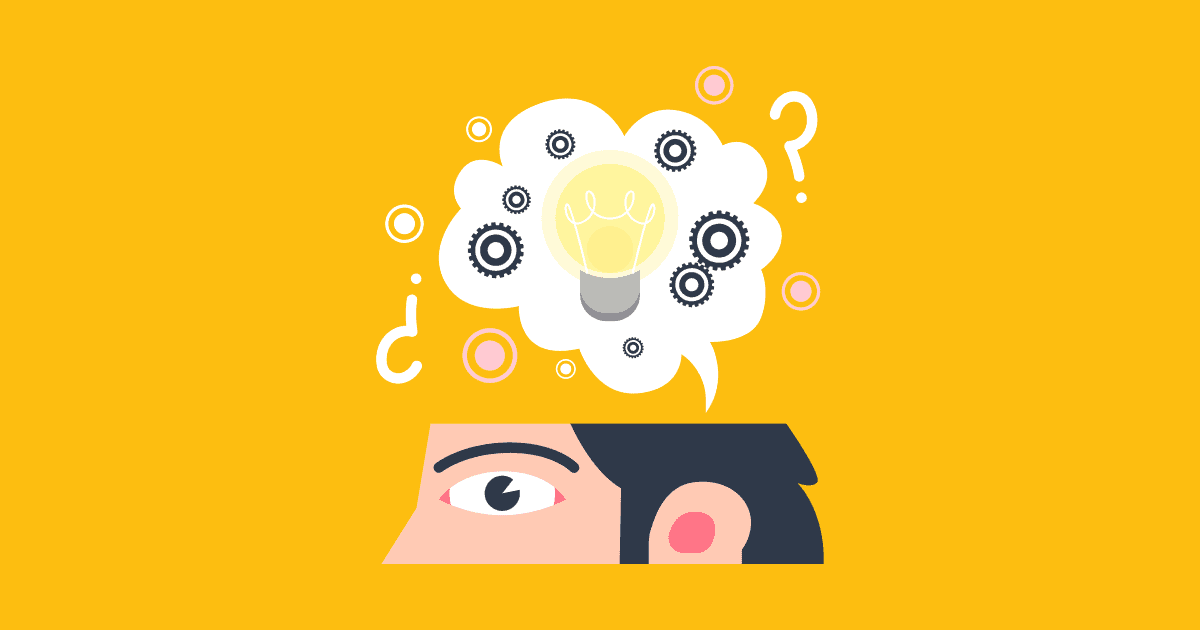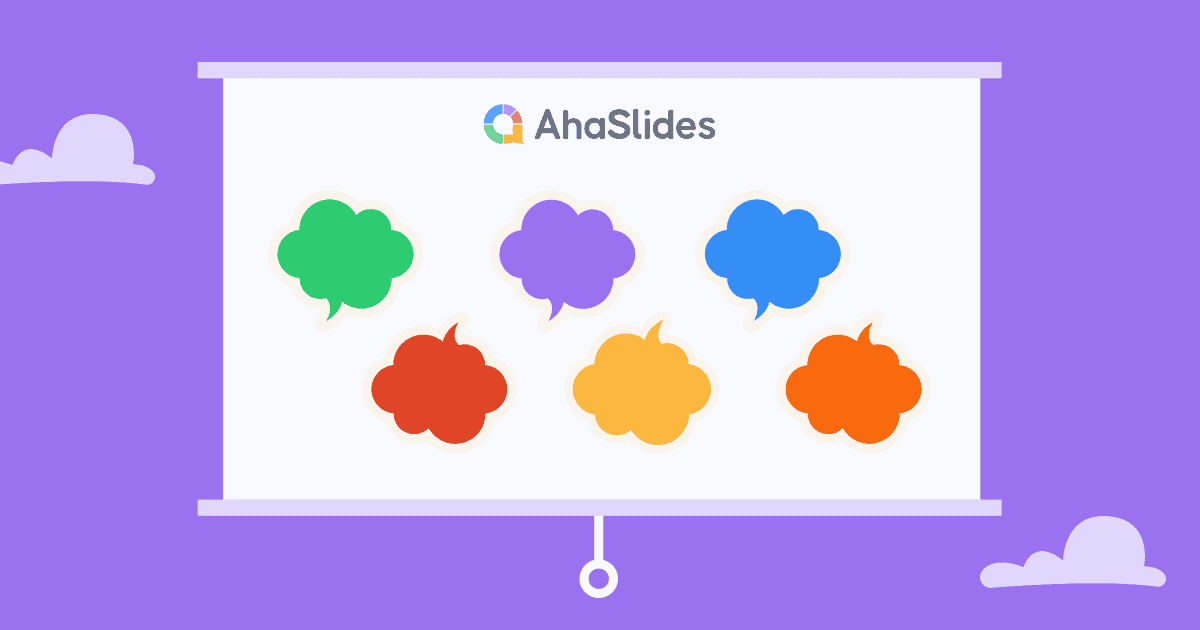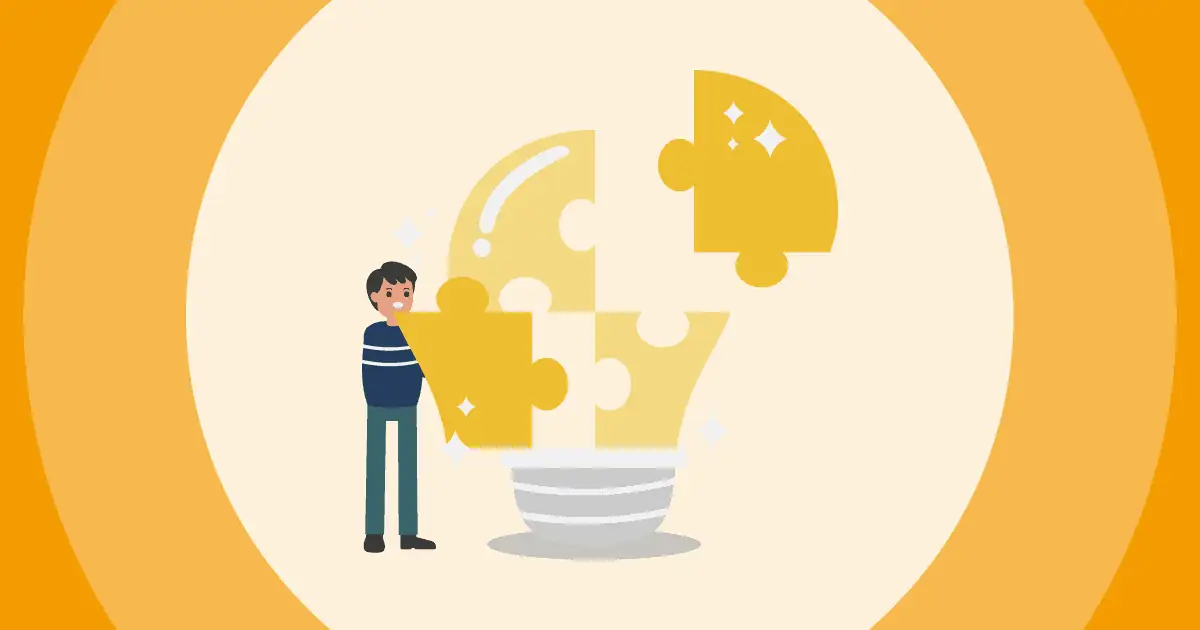ストレスが多く、ペースが速い環境では、何度も直感に頼って意思決定をすると役に立ちます。
ただし、いつ適用するかを知ることで、 直感的な思考 難しいです。 それが何なのか、そしてそれをどのように機能させることができるのかを理解することで、良い結果をもたらす素晴らしい決断を下せるようになります。
さらに詳しい洞察を得るために詳しく見てみましょう👇
目次
ソフトスキルを開発するためのその他のヒント
| 直観的思考の反対は何ですか? | 直感に反する |
| 「直感的思考」という言葉を発明したのは誰ですか? | アンリ·ベルクソン |
| いつだった「直感的思考」という用語が見つかりましたか? | 1927 |

より優れたエンゲージメント ツールをお探しですか?
最高のライブ投票、クイズ、ゲームでさらに楽しみを追加しましょう。これらはすべて AhaSlides プレゼンテーションで利用可能で、すぐに観客と共有できます。
🚀 無料でサインアップ☁️
直観的思考とは何ですか?

プロ野球選手がホームベースに立っているところを想像してみてください。ピッチャーが振りかぶって、速球をまっすぐに投げ込んできます。反応する時間はほんの一瞬。意識して考える時間などありません!
でも、驚くべきことが起こります。体が何をすべきかを知っているのです。何も考えずに、手が所定の位置に振り上げられ、パチン! 完璧なヒットが生まれるのです。
その洞察はどこから来たのでしょうか? あなたの直感。
脳の奥深くでは、ピッチャーの動きやボールの回転などの微妙な手がかりを脳の一部が認識し、練習や過去の試合での何千回もの繰り返しに基づいて、どのように反応するかを正確に知っていました。
これが直感的な思考の実践です。直感的な思考によって、私たちは豊富な経験をほぼ瞬時に活用し、論理的な思考なしに「直感的な決断」を下すことができます。
『トップガン』のクルーズが空中戦で正しい動きをただ感じたり、ネオがマトリックスのコードを理解せずに見たりするのと同じです。
一番素晴らしいのは?直感は反応のためだけのものではなく、洞察力や創造力にもつながるスーパーパワーです。
理解や革新的な解決策が湧き起こる「なるほど!」という瞬間は、論理で完全に説明できる前に、直感から湧き上がってくることが多いのです。
4種類の直観的思考とは何ですか?
直観的思考は大きく4種類に分類され、それぞれに特徴があります。 あなたはどのタイプの直観的思考の持ち主ですか?🤔
認知的直観
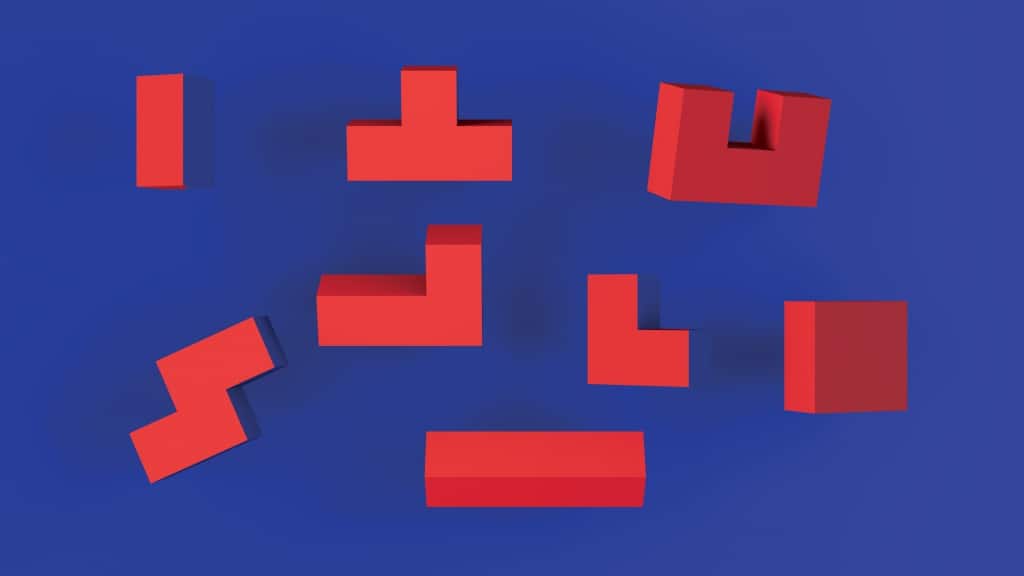
これには、認知課題の経験を通じて無意識に学習したパターンや推論にアクセスすることが関係します。
これにより、スキーマの照合と判断を迅速に行うことができます。 例としては、文法パターンの瞬時の認識、複雑な問題解決、馴染みのあるパターンに基づく数学問題の答えの直感、またはリスク/信頼性の評価などが挙げられます。
感情的な直観
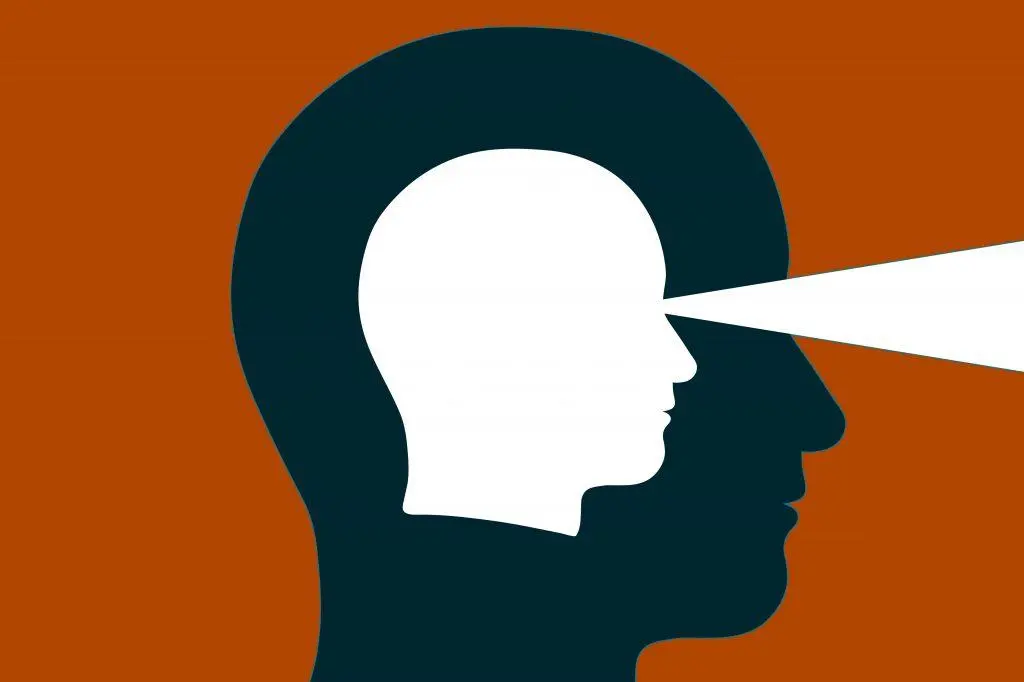
直感とも言います。 このタイプは、直観を導くために感情や感覚に依存します。
意識的な推論なしに、物事が正しいと感じたり、不安に感じたりすることがあります。感情は、対人関係における判断、欺瞞の見破り、倫理的・道徳的な意思決定など、感情が関わる場面に関わっています。
分析的直観
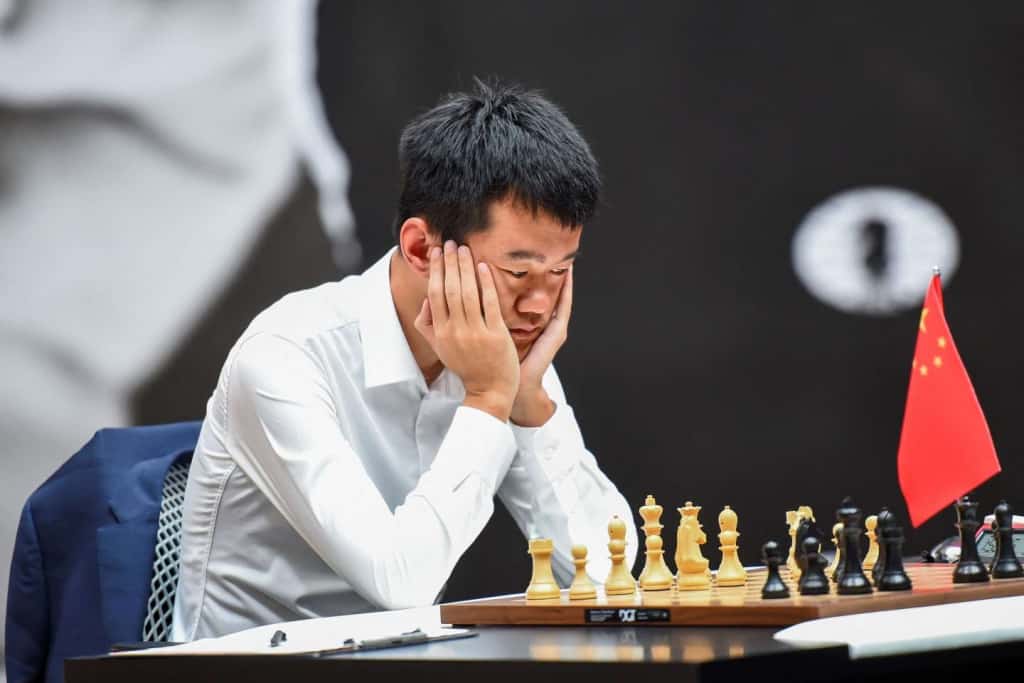
スキルまたは分野における長年にわたる広範な熟考と自動学習から発展します。
専門家は複雑な状況を直感的に解釈し、適切に対応できます。 例には、チェスの名手、専門の医師、およびその分野で深い経験を持つその他の専門家が含まれます。
体現された直観

筋肉、固有受容、感覚の学習に依存します。
身体的な練習と動きをベースにした社会経験を通して発達します。 調整スキル、バランス、顔の表情やボディランゲージなどを通じた非言語的な感情的/社会的合図の解釈などがこのカテゴリに分類されます。
一部には次のものも含まれます。
- 社会直観 – 意識的な推論なしに、社会の力学、規範、相互作用を直感的に理解する能力を指します。感情の解釈、行動の予測、人間関係や権力構造の識別、集団の影響や力学の感知など、様々な領域に影響を及ぼします。
- 生成的直感 – 様々な情報を直感的に統合することで、新たなアイデアやイノベーションを生み出したり、問題を斬新な視点で捉えたりします。例としては、発明、革新的なデザイン、画期的な科学理論の構築、芸術・人文科学における予想外の視点などが挙げられます。
これら4つのタイプはすべて、意識的にアクセスするのに時間がかかる素早い洞察をもたらします。そして、それらはしばしば相互作用し、認知パターンが感情的な反応を引き起こし、それが長期的な経験学習に影響を与えることがあります。あらゆるタイプの直感を効果的に発達させるには、常に新しい経験に触れ、内省的な学習を続けることが重要です。
直観的な思考は良いのか悪いのか?

直感的な思考は両刃の剣です。 豊富な経験を通じて専門知識が構築されている場合には非常に有益ですが、証拠に基づいていない一か八かの意思決定に依存する場合は危険です。
直観的思考には次のような潜在的な利点があります。
- スピード – 直感は非常に 迅速な意思決定 時間が限られているとき。 これは有利な場合があります。
- 経験に基づく洞察 – 直感には経験から得た無意識の教訓が組み込まれており、有用な視点を提供できます。
- 創造性 – 直感は、新しいつながりや革新的で型破りなアイデアを促進する可能性があります。
- 最初の予感 – 直感的な勘は、さらなる調査と検証の出発点として機能することがあります。
直観的思考には次のような潜在的な欠点があります。
- バイアス – 直感は、アンカーリング、感情ヒューリスティック、集団内偏愛などの認知バイアスの影響を受けやすく、判断を歪めます。
- 無効なパターン – 直感的なパターンは、確かな証拠ではなく、古い、不正確な、または一度限りの過去の経験に基づいている可能性があります。
- 正当化 – 直感的な考えの正確さを公平に調査するのではなく、それを正当化しようとする本能があります。
- 詳細よりも全体論 – 直感は、重要な微妙な点を注意深く分析するのではなく、より広いテーマに焦点を当てます。
- 自己満足 – 直感により、感情に従って行動する傾向があり、綿密な検討を妨げてしまうことがあります。
より直観的な思考者になるためのヒント
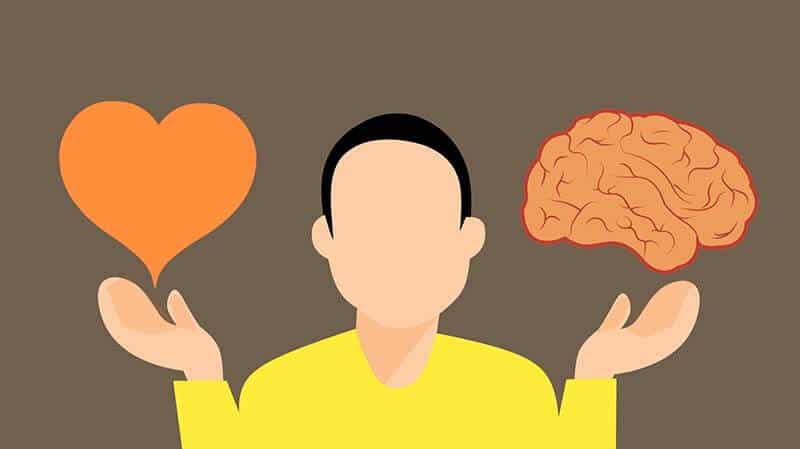
より直観的な思考者になるためのヒントをいくつか紹介します。 これらの戦略は、時間の経過とともに、多様で内省的な露出と柔軟な思考を通じて直観的思考を強化します。
- 自分の分野で幅広い実践経験を積みましょう。直感は、これまで接してきたものの中にあるパターンを無意識に認識することで生まれます。常に自分自身に挑戦し続けましょう。
- マインドフルネスと自己認識を実践しましょう。自分の直感や予感を、判断せずに感じてみましょう。時間が経つにつれて、自分の直感をより信じられるようになるでしょう。
- 発散的な思考を奨励します。 無関係な概念を関連付けます。 幅広くブレインストーミングを行います。 直感はアイデアを新しい方法で組み合わせます。
- 問題解決中に休憩を取りましょう。 インキュベーションにより、潜在意識から直観が表面化します。 散歩に出て、心をさまよわせてみましょう。
- メタ認知を鍛えましょう。過去の直感を分析し、何が正しかったのか、そしてなぜ正しかったのかを考えてみましょう。自分の直感の強みを自己認識しましょう。
- 自分の夢/白昼夢に注意してください。 これらにより、論理的な基準を超えた直感的な洞察が得られます。
- 自分の専門とは異なる分野を勉強してください。 新しい情報は、直感的な連想と問題解決の角度を刺激します。
- 直感的な反応による却下を避けてください。 直感を捨てる前に、さらに検討する機会を与えてください。
ボトムライン
直感的な思考は、段階的な推論ではなく、素早い潜在意識のパターン認識、感情、そして経験に依存します。練習を重ねることで、直感はまるで第六感のように機能するように鍛えられ、どんな状況でも優れた問題解決者になれるのです。
よくあるご質問
直感的に考える人は何をしますか?
直観的思考の人は、問題に取り組み、意思決定をし、自分自身を表現する際に、厳密な論理分析ではなく、主に直感、経験を通じて認識される暗黙のパターン、異なるアイデアを直感的に結び付ける能力に依存します。
直観的思考の例は何ですか?
直感的な思考を示す例としては、チェスのグランドマスターがあらゆる可能性を意識的に分析することなく、最善の次の一手を瞬時に見抜くことが挙げられます。彼らの直感は豊富な経験に基づいています。また、経験豊富な医師が、患者の見慣れない症状の原因を、検査結果ではまだ説明がつかなくても、かすかな兆候や「何かがおかしい」という感覚に基づいて特定することもあります。
論理的である方が良いのか、それとも直感的である方が良いのでしょうか?
論理的思考と直感的思考のどちらが本質的に優れているかという単純な答えはありません。どちらにも長所と短所があります。一般的には、この2つのアプローチのバランスを取ることが大切だと考えられています。





